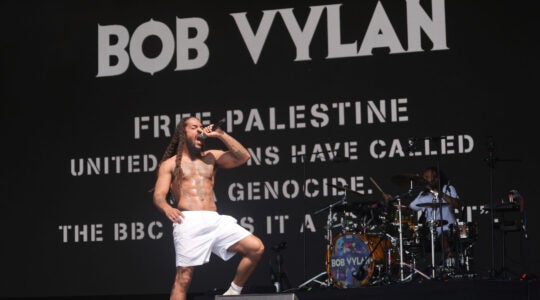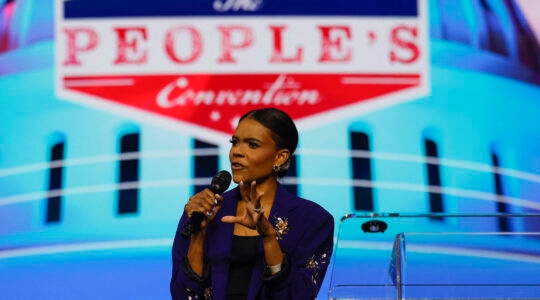“There is more tolerance for dissent in Israel than in the Jewish community,” Abraham Foxman told me yesterday at the Anti-Defamation League’s annual Washington conference.
That’s one reason the ADL’s national director gave for why it makes sense for J Street to be admitted to the Conference of Presidents of Major American Jewish Organizations.
“We will support the admission of J Street not because we agree with them, not because we support their views, but in order to ensure the integrity and credibility of American Jewish advocacy and of the Conference of Presidents,” he said.
The ADL nod swells mainstream, centrist support for the admission into the community’s foreign policy umbrella of J Street, a group that calls itself “pro-Israel, pro-peace” and is often critical of Israeli government policy.
Backers of J Street’s admission say they have reached “critical mass” for J Street’s entry — 34 of the conference’s 51 members.
Also favoring entry in the secret ballot that may take place Wednesday afternoon are the Jewish Council for Public Affairs, the community’s domestic policy umbrella; the Union for Reform Judaism, and the Conservative movement’s Rabbinical Assembly. “The RA will be voting affirmatively for J Street to become a member of the COP,” its executive vice president, Rabbi Julie Schonfeld, told me in an email.
I understand that the Jewish Federations of North America also likely will vote in favor.
Declarations of support and opposition are unusual ahead of admission to the Presidents Conference — the ballots are secret. But J Street is eliciting public comment in part because groups hope to influence the vote.
Among the most outspoken of those opposing is the Zionist Organization of America. Last week, it took J Street to task for its statement suggesting there may be value in the interim governance agreement between Hamas and the Palestinian Authority. J Street reasoned that a Palestinian Authority with broad backing was perhaps better capable of making hard choices for peace.
“J-Street attempts to justify its egregious position which endangers Israel by stating: ‘you make peace with your enemies’,” a ZOA statement said. “J-Street ignores the fact that you only can make peace with your former enemies who now sincerely want to make peace. Hamas is calling for destroying Israel — not for peace with Israel.”
The ZOA said it was “shocking” that this statement should come out a week before the Presidents Conference vote.
One member of the Presidents Conference, Americans for Peace Now, welcomed the Palestinian reconciliaiton agreement.
Morton Klein, the ZOA’s national president, told me the difference is that APN and other groups pitch their disagreements within the pro-Israel tent, while J Street takes its activism into the broader political arena.
J Street’s political action committee, he said, raises money for politicos who sometimes run against candidates favored by other pro-Israel groups. Klein also noted that J Street has hosted speakers who are supportive of the BDS movement.
“They bring to campuses and their conferences speakers who promote BDS (boycott, divestment and sanctions), who defame and delegitimize Israel by falsely claiming that Israel commits atrocities and war crimes against Palestinians,” he said.
Earlier I said this week’s secret ballot “may take place” because of the complicated rules for admission. I’ve heard that the room needs a quorum of the conference’s 51 members, which is 75 percent, or 38 members, before a vote can take place. (We’re seeking confirmation on whether approval needs two-thirds of all member organizations or two-thirds of those in attendance.) With no quorum, the vote then takes place by mail, in which case a two-thirds majority is required of the entire membership.
JTA has documented Jewish history in real-time for over a century. Keep our journalism strong by joining us in supporting independent, award-winning reporting.




